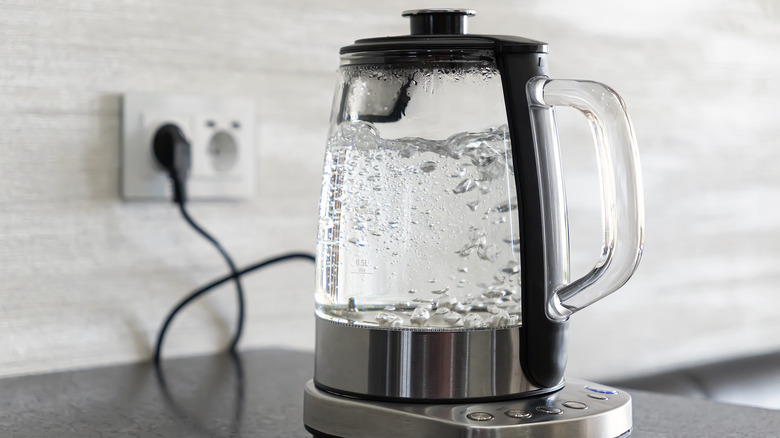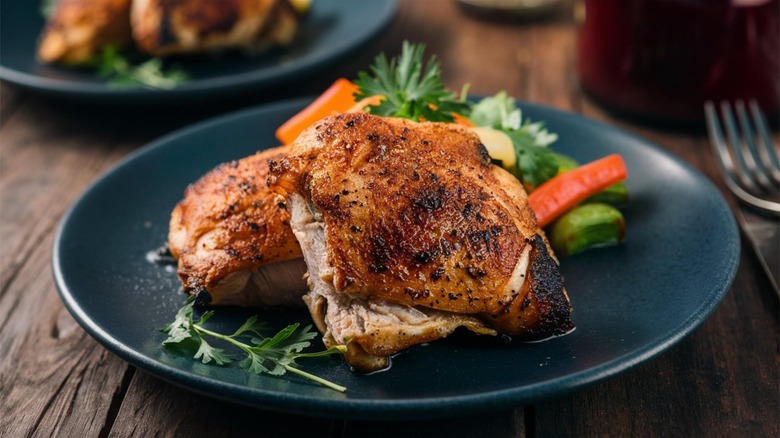Pour Boiling Water Over Chicken For Superbly Crispy Skin
Having to remove squidgy, rubbery skin before settling down to eat chicken is a surefire way to ruin an appetite. It's either crispy, flavorful skin, or no skin at all when it comes to chicken, and for many, there can be no in-between. Luckily, there is a proven technique for achieving shatter-crisp skin using boiling water. It's a method that is typically reserved for extra-fatty birds such as duck or goose — but as it happens, it works with chicken as well.
If you've ever enjoyed Peking duck, those garnet-hued beauties that are a signature special of many Chinese restaurant kitchens, you'll know that aside from juicy meat and a sweet, earthy flavor from Chinese five spice, its most outstanding characteristic is incredibly crispy skin. To achieve this, boiling water is poured over the duck which shrinks and tightens the skin, making it easier to score, and renders out some of the fat. The bird is then patted dry, and hung or refrigerated overnight to remove any excess moisture before roasting. The less fat that needs to be rendered and water that needs to evaporate during cooking, the crispier the skin will be.
Using the boiling water method for chicken
Considering this technique is typically reserved for fattier birds, it would make sense to apply it to the parts of the chicken with the most fat, like the wings, legs, and especially the thighs. These dark meat cuts are popular for their fuller flavor and especially their ratio of tender meat to crispy skin. Using boiling water to maximize the bird's culinary potential is a simple step, but one that majorly upgrades the eating experience of dishes like honey soy-marinated chicken thighs.
Start by salting the chicken well on both sides, even under the skin, and refrigerate it overnight. This is another way to draw out moisture. When you're ready to start cooking, place the meat on a rack over a shallow pan and slowly pour a full kettle of boiling water over the top. You'll see the skin tighten and become more translucent as the fat renders out into the water.
Discard the water and pat the chicken dry with paper towels before cooking. Be sure to re-season it before deep frying, pan-frying, or roasting, and be prepared for bronzed, crispy skin, and delectably moist and tender meat underneath.

